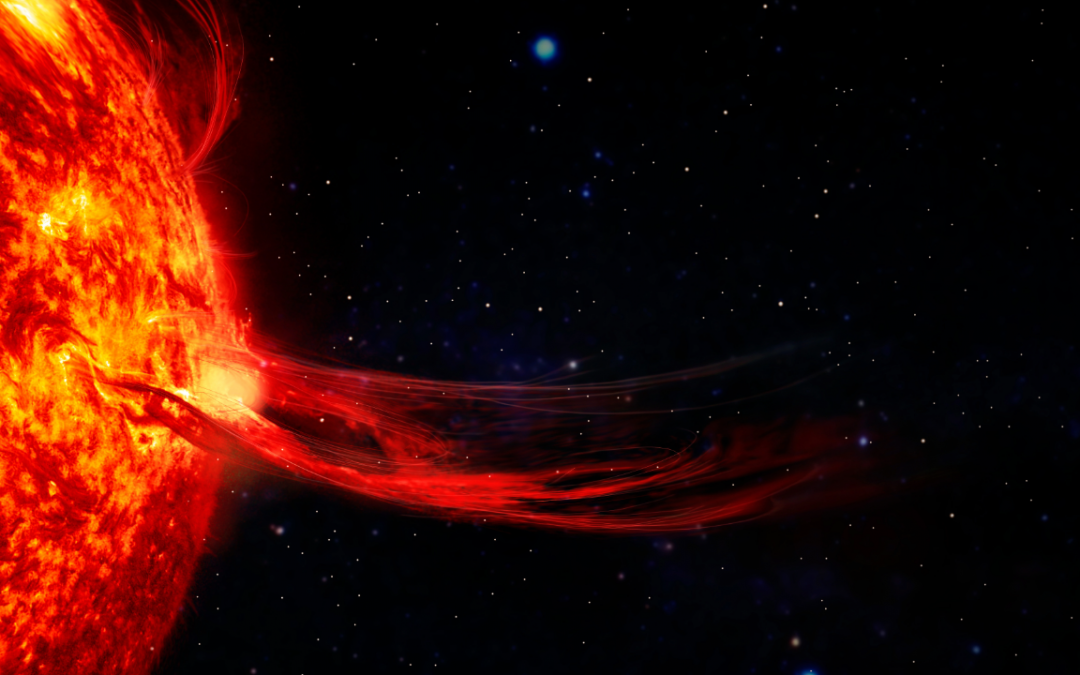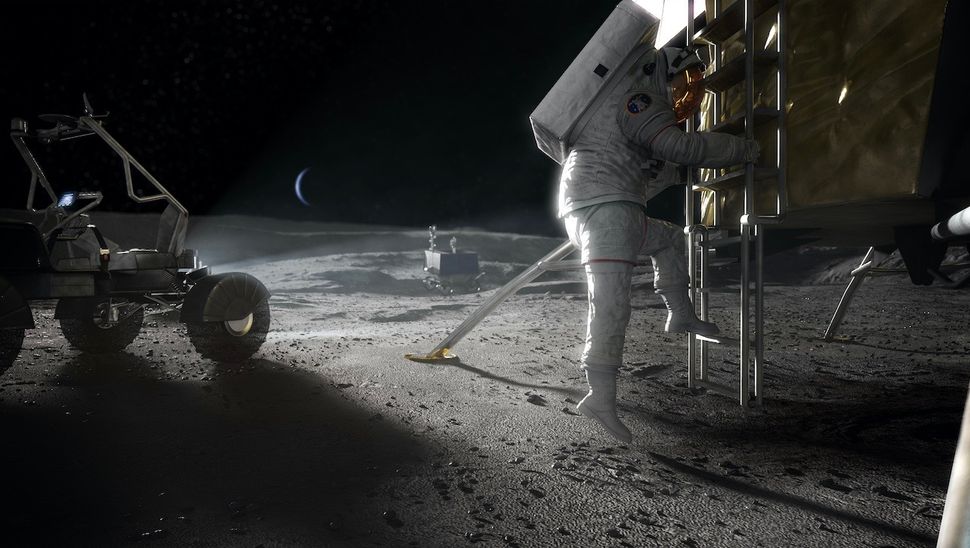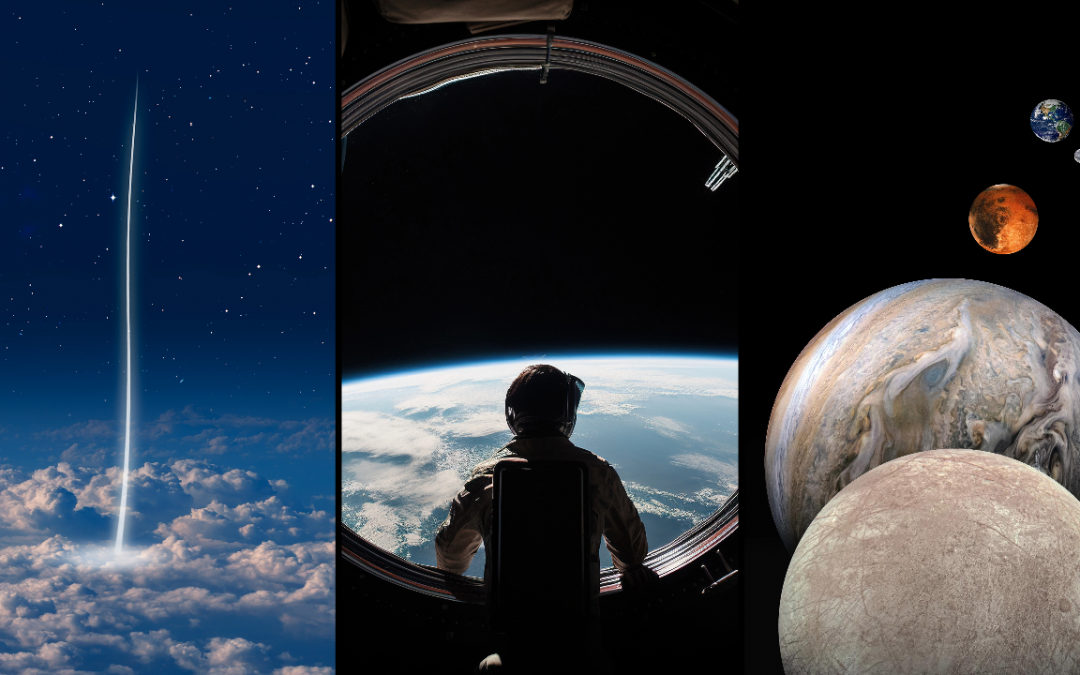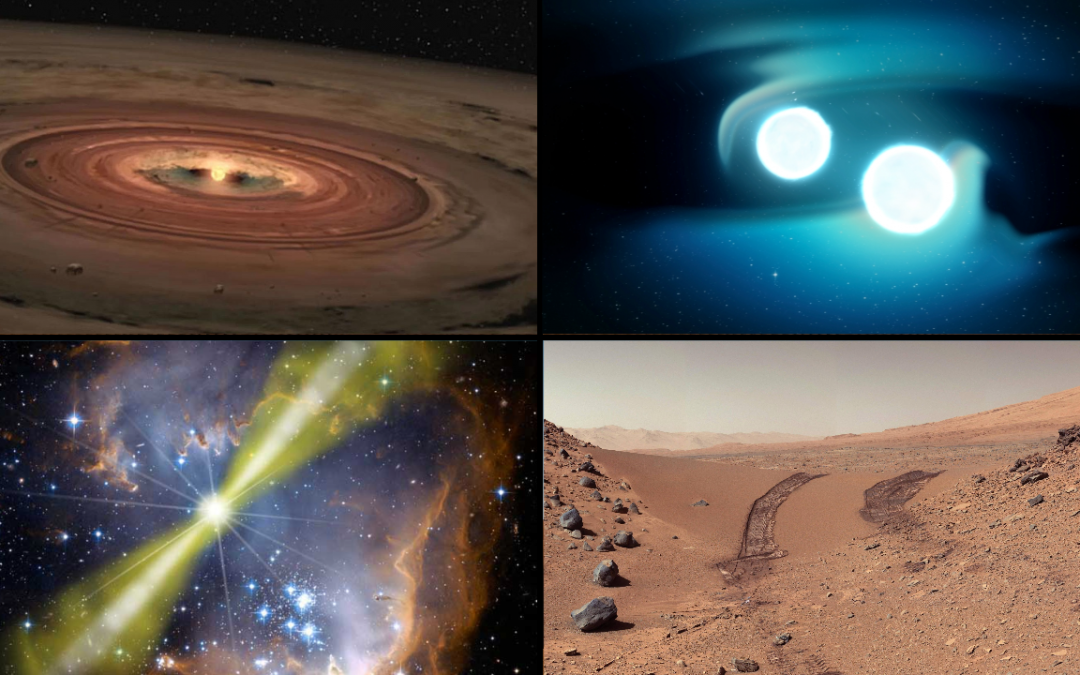Solar cycle 25 is shaping up to be a doozy, with plenty of flares and coronal mass ejections blasting off the Sun. As the solar activity continues to rise, how are things shaping up?



Fraser Cain
Universe Today

Dr. Pamela Gay
CosmoQuest

Solar cycle 25 is shaping up to be a doozy, with plenty of flares and coronal mass ejections blasting off the Sun. As the solar activity continues to rise, how are things shaping up?

With Artemis 1 completing its robotic flight around the Moon, we know that the SLS works. Next comes Artemis 2, with a crew of astronauts flying past the Moon. If that’s successful, we could see humans set foot on the Moon in December 2025. But there is a long list of challenges to consider that could delay things considerably. Go or no go for launch?

Last week we looked back at some of the ideas that science has changed its mind about. This, we look forward, into the future, at some of the big ideas that astronomers are making progress in. What space science are we looking forward to?

Astronomers talk about all the amazing discoveries they’re making but sometimes, it turns out, they were wrong. After decades and centuries of discoveries, how have they changed their minds?
Recent Episodes
The initial release of this audio was glitchy. We've fixed it now, so please re-download. You know what's fun? Mysteries. Here's one: fast radio bursts. Astronomers have been detecting mysterious one-time signals from across the sky. What's causing them? Nobody knows...
Join us at a special date/time for this episode! Pamela's traveling so we're recording this on Saturday, 1/6/2018, at 2 pm EST / 11 am PST / 19:00 UTC! Phew, 2018, time to press the reset button and enjoy a whole new year of space exploration and space science. What's...
2017 was a crazy year for, well, you know. But, it was a great year for space science, a kilonova, extrasolar planets, reusable rockets and more. Let's look back at the year that was and remember our favorite space science. We usually record Astronomy Cast every...
What happens when the future meets biology? Bioscience science fiction, of course. And that's our focus today as we continue our journey though science-based science fiction. We usually record Astronomy Cast every Friday at 3:00 pm EST / 12:00 pm PST / 20:00 PM UTC....
It's time to talk computers, and how we're going to be dealing with them in the future. In our next segment on modern sci-fi, we talk about the future of the human-computer interface. We usually record Astronomy Cast every Friday at 3:00 pm EST / 12:00 pm PST / 20:00...
Our journey through interesting science fiction, this time we talk about speculative fiction dealing with materials science, nanotechnology and 3D printing. It's a staple in Star Trek, but what other stories deal with it? We usually record Astronomy Cast every Friday...
We've always been fans of science fiction, but we really like our science. Today we'll talk about some books we've been reading recently that do a good job of dealing with the science in science fiction. We usually record Astronomy Cast every Friday at 3:00 pm EST /...
Astronomers depend on simulations to study the Universe. From relatively straightforward orbital simulations to vast simulations that try to recreate the large scale structure of the Universe from the Big Bang. Today we're going to talk about some of those...
We're recording on Sunday, Nov. 19 this week due to Pamela taking a well-earned vacation next week! Join us at a special time - 2 pm EST/ 11 am PST / 19:00 UTC for this episode! Many of the moons and planets across the Universe are in resonance with each other and...
We depend on zero for our math to work right, but this number was actually invented in fairly recent times. Why do we need zero? Was it inevitable? Note: Due to how Pamela had to record, the audio on the Full Raw Feed is not up to our usual quality this episode. Chad...
Electromagnetic radiation, also known as "light" is pretty handy for astronomers. They can use it to directly and indirectly observe stars, nebula, planets and more. But as you probably know, light can act like a wave, creating interference patterns to teach us even...
Astronomers this week announced that they had discovered an asteroid or comet on a trajectory that brought it from outside the Solar System? Is this the first case of an object from deep space? And what can we learn from this discovery? We usually record Astronomy...
Have you seen the "Man in the Moon"? Pareidolia is your mind's way of helping you make sense of the world, but doesn't always match reality. We usually record Astronomy Cast every Friday at 12:00 pm PDT / 3:00 pm EDT/ 19:00 PM UTC . You can watch us live on here on...
Have you noticed that weather forecasting has gotten much better in the last few years? Thanks to weather satellites, weather stations, and better forecasting techniques. How do scientists predict the weather with any kind of accuracy days or even weeks in the future....
What's the weather doing? Is it going to rain today? How much? What about temperatures? We depend on modern weather forecasting, thanks, in part to the vast network of weather satellites. What instruments do they have, what orbits do they use. We usually record...
The space age has given us the ability to look at every corner of the globe in every wavelength. It's revolutionized our ability to predict the weather, keep track of environmental damage, and watch the world change. Today we look at what missions and technologies...
The iconic Arecibo Radio Observatory has been a mainstay in science and science fiction. This Puerto Rico-based radio telescope was already in an uncertain level of funding. But now with the damage from Hurricane Maria, it might be shut down forever. We usually record...
And now Cassini's gone. Smashed up in the atmosphere of Saturn. But planetary scientists are going to be picking through all those pictures and data for decades. Let's look back at some of the science gathered up by Cassini so far, and we can still learn from this...
It's time to say goodbye to an old friend, NASA's Cassini spacecraft, which has been orbiting within the Saturnian system since 2004. But why does a seemingly healthy spacecraft and mission need to come to an end? Today we look back at the mission, some of the amazing...
This week, we return to our starting point, where Astronomy Cast began: Pluto. 11 years on, we have a whole new appreciate for the dwarf planet Pluto. We've visited it, probed it and taken pictures. It's time for an update. We usually record Astronomy Cast every...